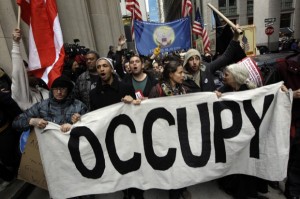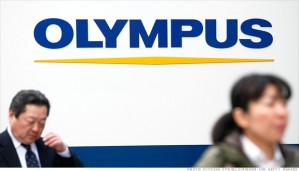Nov
22
Profits vs. Sustainability?
Posted by: Paul Dhaliwal | November 22, 2011 | Leave a Comment
When I came across Fraser Mcgee’s blog post about the Alberta Tar Sands operation, I was surprised to find him discussing the compatibility of environmentalism and profitability. In my opinion, his argument that oil production can be environmentally sustainable is doubtful at best. Deforestation cannot be expressed as Eco-friendly in any way; neither can the loss of many species natural habitats.
More so, if guidelines regarding environmentalism were established by the federal or provincial government and imposed upon the Alberta Tar Sands operation, there could be various negative results. The loss of profits features prominently amongst these negative results, as this could potentially dissuade firms from this operation, and render the allocation of resources (capital) rather sluggish. Ultimately the effects of implementing stringent environmental guidelines would not be desirable from the provincial or federal governments’ point of view. As I see it, their sights are fixed upon a resurgent economy propped up by a booming oil industry, rather potential success impeded by government intervention.
Environmental responsibility is indeed an issue that oil and developmental companies should keep in mind while striving for profits, but environmentalists should also realize that such a potentially profitable endeavour will not be readily shut down, given its’ economic potential.
Nov
21
A Lost Cause
Posted by: Paul Dhaliwal | November 21, 2011 | Leave a Comment
While surfing through Terry Lee’s Business Blog, I came across a post of his that was written on the Wall Street protest movement. Terry voiced his skepticism about the entire movement, as it did not have a chosen leader or even an appointed spokesperson for that matter. Also, he argued that the conditions in America do not reflect the conditions needed for a revolution.
A month after this post went online it has become clear to me that the Occupy movement is indeed mislead and without direction. Not only has their “Manifesto of Demands” been ridiculed and called ignorant, the movement has suffered from several media debacles recently. The Occupy Vancouver movement was shut down after a 23-year old woman died due to an illicit drug overdose on the Occupy campsite. This and the alleged rape of two females at the Occupy protest in New York City gave a large amount of Canadians and indeed North Americans in general the image that the Occupy movement is made up of “hippies” and people of questionable habits.
As for myself, I am quite against this movement for reasons I have voiced before. The fact that the Occupy sites double as crack-houses only reaffirms my opinion against the movement.
Nov
17
Comeback or false hopes?
Posted by: Paul Dhaliwal | November 17, 2011 | Leave a Comment
Encouraged by the success of Groupon’s debut, Angie’s List, a reviews site for local services such as home repair and catering, is going public on Thursday. Its IPO is relatively high, at $13 per share. Evelyn Rusli, a New York Times’ correspondent who blogs about IPO’s and offerings, believes that internet start-ups are making a comeback into public markets.
The confidence that underwriters Merril Lynch and Bank of America have shown by taking the option of selling 1.3 million of Angie’s Lists’ shares is a positive indicator for market speculators. Also, Fox Network endorsed the company by holding an interview with the founder, Angie Hicks, as can be seen in the following video.

However I would not say that these successes merit speculative confidence, as shaky economic conditions can propel shares prices either way. Speculators would be wise to do their own research, and not rely on venture capitalists’ hopes. Such trust would have proved disastrous in the case of Clovis Oncology, a maker of cancer drugs that posted a loss on its first day of being traded publicly.
Although Internet start-ups may be achieving some successes in the public trading market, investors would be wise to keep an eye out for intangibles such as Europe’s tumbling economy.
Nov
15
Cutting into Power and Reality
Posted by: Paul Dhaliwal | November 15, 2011 | Leave a Comment
India has often been lauded by business leaders as being a more desirable destination for their capital than China, solely based on the fact that India is a democracy. The prevalent belief amongst citizens of North America is that the Chinese economy is as it was during the 70’s; tightly controlled with little or no economic freedom. Whereas the Indian economy is believed to be safer for ones’ investments and relatively free of government intervention.
These beliefs are worlds away from reality.
The Economist recently published a damning article stating “India’s inexorably growing power crisis is a bottleneck that threatens to hobble its overall growth rate.” The reality is that of the top 100 Indian companies by profit, 40 are state-controlled, as if India is incapable of fully embracing privatization.
The consequences of this timid approach towards privatization are most readily seen in the issue of power in India, where power cuts are a reality of life in every state.  The energy industry more than any other shows the prevalence of state control in India, and these power cuts are testament to state controls’ negative effects.
The energy industry more than any other shows the prevalence of state control in India, and these power cuts are testament to state controls’ negative effects.
“Private capital has poured into building power stations, but most other bits of the supply chain are in the hands of the state. Often this set-up fails to deliver.”
Nov
15
Diamonds in the Trough
Posted by: Paul Dhaliwal | November 15, 2011 | Leave a Comment
Earlier today while surfing the BBC online I came across an article titled “Start-up China-How to build a successful chain of Restaurants.” As is commonly known, China is a one party communist state, in which the trappings of excessive capitalism are still often frowned upon by party officials.
So how did this success story come to pass? The article spoke of a lady who went from owning one obscure restaurant to an entire chain, employing thousands of workers in a span of a decade. China is home to other such success stories, comparable to diamonds in the trough as so many Chinese live in abject poverty.
Indeed the quirk that caused me the greatest deal of consternation was how the restaurant chains’ owner Zhang Lan came to bypass the government stance towards capitalism. High level officials and their wives would dine at her premises, and so she obtained upper level protection from government intervention when she began to build her empire.
Most Chinese however do not come across such luck, as China’s rural population is amongst the poorest on the planet.
Perhaps as more Chinese citizens being to chase this level of success or the “Chinese Dream,” their voices will usher in another wave of economic reforms in China.
Nov
10
The King of the Dotcom Boom
Posted by: Paul Dhaliwal | November 10, 2011 | Leave a Comment
Microsoft today is a household name, a name that one automatically connects with Bill Gates, wealth and technology. The history of it however is known to a substantially lesser number.
Microsoft was a venture started by Bill Gates and Paul Allen in 1975, two young and ingenious young men. Over the next 20 years it would create for itself a software hegemony, as millions of its’ products were sold across the globe, making its’ founders into billionaires many times over. However the greatest source of amazement for most people that have followed Microsoft comes when learning of the way it was founded.
Paul Allen and Bill Gates had been recognized as geniuses (Gates scored 1590 out of 1600 on his SAT!), however for all their intelligence, the venture that became known as Microsoft was laughed at. Starting off modestly, the company was staffed by 8 employees, people that were scoffed at and considered “hippies,” for the way they dressed and behaved-very casually and modestly.
These naysayers doubts were cast away as the DotCom Boom kicked in, and Microsoft rode its wave to unprecedented levels of success. Revenue levels soared from $1,000,000 in 1975 to over $17 Billion in October 2011. Safe to say, Gates and Allen laughed their way to the bank.
Nov
5
Faltering Bravado?
Posted by: Paul Dhaliwal | November 5, 2011 | Leave a Comment
Earlier today the Greek Prime Minister George Papandreou won a crucial vote of no confidence, securing his power, and enabling him to rule out any snap elections in Greece, while ironically at the same time promising the sharing of power in the country.
The inconsistencies shown by Papandreou have made him the mockery of the western world this past week. The appalling decision to call for a referendum on whether or not to accept the E.U bailout threw global markets into turmoil, and prompted altogether less than subtle threats from the French and German governments. Not to mention the shaky handling the austerity cuts and the fumbled management of Greece’s debt.
In light of these altogether embarrassing points, it amazes me that Papandreou was cavalier enough to suggest to his citizens that an election would render Greece bankrupt and that there must be a consensus in parliament; meaning his word must be followed, or else.
Papandreou’s actions have pushed Greece into a corner; the referendum would have in fact been the deciding factor on whether or not to stay a part of the E.U. Had the referendum not been called off, it could have lead to the bailout funds being withheld- without which Greece would surelygo bankrupt before the end of 2011.
Nov
5
$687 million for advising? Sign me up!
Posted by: Paul Dhaliwal | November 5, 2011 | Leave a Comment
Olympus, a Japanese company that deals in the lucrative medical equipment business and also in digital cameras, is today in the middle of a legal and media firestorm.
Three years ago in 2008, Olympus acquired Gyrus group, a British company that specializes in medical equipment for $2 Billion U.S. At the time it was the largest takeover of a foreign company that a Japanese firm had ever undertaken. However the controversy lies in the fact that out of that $2 Billion, an estimated $687 million in shares and cash was paid out to two bankers for “takeover advice.”
Enter Hajime Sagawa and Akio Nakagawe, two previously relatively unheard of bankers on Wall-Street. The pair ran a company named Axes, which was the recipient of the $687 million advice fee. This sum is 30 times the average nominal fee paid out to firms and individuals in exchange for consultations (36% of the takeover, as opposed to the usual 2%).
These events were brought to light by the ex-CEO of Olympus, Michael Woodford, who was recently fired when he attempted to bring these massive consultation fees to regulatory services’ attention. I can only speculate as to what the motives behind this vast payout could be; deeper ties between the two bankers and Olympus, to kickbacks to Olympus executives.
I will be following this story as it progress quite attentively, as the case is now under federal investigation.
Oct
2
Misguided Revolutionaries
Posted by: Paul Dhaliwal | October 2, 2011 | Leave a Comment
“An estimated 2,000 people have gathered in Lower Manhattan, New York, for the largest protest yet under the banner Occupy Wall Street.”-BBC
This headline caught my eye as I surfed the web without a particular thought in mind; no more than two paragraphs into the article, I found myself seething with frustration.
Demonstrators protested against “corporate greed, politics and inequality” by camping out in the financial district of New York City, most commonly known as Wall Street.
What gave these protesters the inclination to protest against corporate greed and inequality? These are citizens of a nation that has rigorously enforced commercial laws and a judicial system with unparalleled accessibility. As for the question of inequality; the protesters’ argument is that the wealthiest 25% of Americans posses 87% of American wealth, with the bottom 40% owning about 1%. However, the reality is that the 1% of wealth owned by the bottom 40% of Americans is still a princely sum when compared to most nations of Asia and Africa. Perhaps these protestors should keep this humbling fact in mind while attempting to provide their nations’ economy with a solution by shutting down its’ financial hub.
In the end my thoughts were best summarized by the words of Anthony D’Angelo, “Realize that if you have time to whine and complain about something then you have the time to do something about it.”
http://www.bbc.co.uk/news/world-us-canada-15143509
Oct
2
A Pragmatic or Callous Education?
Posted by: Paul Dhaliwal | October 2, 2011 | Leave a Comment
In my first blog, I analyzed an ethical diplomatic and economic dilemma; the Palestinian bid for U.N entry being blocked by Israel. This gave rise to a query in my mind as to why ethics and morality are so highly upheld in western society today. Indeed Machiavellianism in the context of business transactions is frowned upon, and business schools seem to trumpet the need to be socially responsible. However a school in Russia is doing exactly the opposite!
Enter the Moscow School of Management, branded by newspapers as a school of the darks arts, due to its unorthodox and unethical approach to MBA training.
Trainees are frequently sent into problematic regions to complete assignments that include having to deal with bribery and lack of property laws. When questioned of the wisdom of imparting such training, the dean of the university, Professor Vanhonacker, astutely replied “You will not learn anything about China or Russia looking out of the window of a five-star hotel”
With such a realistic training process, it is not surprising that almost half of the schools’ alumni in the past 3 years have set up their own companies. It is clear to me that this school and its’ faculty are providing their students with the tools they need to achieve financial-if not moral sucess.
keep looking »






